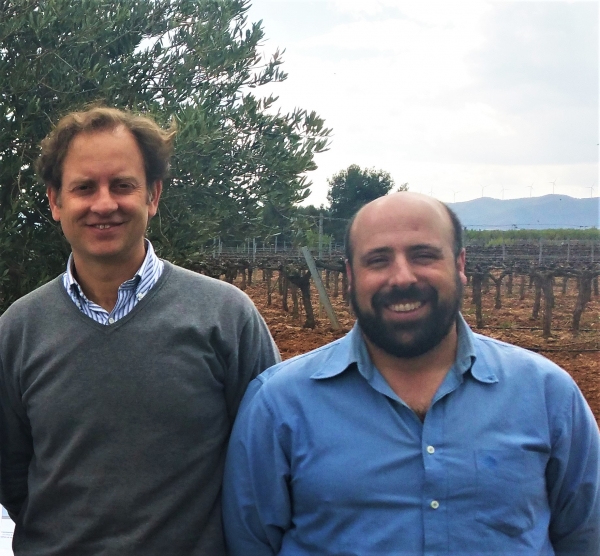Though it is almost unnoticeable, every year large amounts of agricultural soil are lost. This soil is essential not only for the food industry, but also for the clothing and energy industries and, obviously, for the environment. This yearly loss barely comes out to half a centimeter and goes unnoticed to the human eye. However, when we look back, we can find tremendous deterioration that this resource has been undergoing over the years. This is due to the fact that soil’s capacity to regenerate is much less than enough to offset erosion and degradation. Currently, the different between regeneration and loss is so great that soil has been classified as a non-renewable resource. It would take decades or even centuries to recover the soil lost in just one year.
In this vein, Project LIVING SOILS was born, aiming to create a collaborative network linking different countries so they can exchange and spread good practices in the field of agriculture, which will help restore soil and reduce its deterioration. "We are aligned with the FAO’s idea of "Save and Grow", as in we want to get the most out of our crops but in a sustainable way while being respectful of farming soil", explains Emilio Jesús González, lead researcher on the project and Professor at the School of Agricultural and Forestry Engineering at the University of Cordoba.
In order to do so, their basis is the concept of Conservation Agriculture, made up of a series of principles that favor a more efficient use of natural resources and conserve them better, such as not plowing and instead planting directly on top of top soil mulch, mantaining organic covers over the soil to prevent erosion and crop rotation and diversification.
Among the project’s participants we can find several Turkish public entities, local development agencies and the University of Iconium (in Konya, Turkey), the network of Italian cooperatives known as the National League of Cooperatives and Mutuals ( or Lega Regionale delle Cooperative e Mutue in Italian), a German organization focused on training called DEULA-Nienburg GmbH, the European Conservation Agriculture Federation (abbreviated to ECAF, headquarters in Belgium) and the University of Cordoba, taking part via the Mechanization and Rural Technology AGR-126 group led by Professor Jesús A. Gil Ribes, who has vast experience and renowned prestige in research applied to Conservation Agriculture in Spain and in Europe.
Around 50 experts are taking part in the project. They will exchange successful experiences that have occurred in each of their countries, as far as agricultural techniques are concerned as well as those concerned with machinery. Besides, training sessions will be held for industry professionals in other countries. In the end, the project’s results seek to act as a reference point so that professionals in the agriculture industry know the importance of implementing these practices in their work and how to do so.
Most countries participating in the project share similar features regarding their agriculture industries. They are Mediterranean countries, with semi-arid climates and soils with low organic matter content. In addition, in Spain as well as in Italy and Turkey, they have common interests in adapting planting machinery to implement agricultural techniques that are more respectful of the soil. This requires considerable investment and a radical change in the way land is worked.
"It is easier to sow in tilled soil, as traditionally has been done, than in soil protected by plant residues. However, tilling contributes to erosion and therefore, to deterioration", explains researcher Emilio Jesús González. Among the activities to be carried out, the experts from other countries will visit Spain, where there is an extensive network of professionals who practice Conservation Agriculture. It is worth pointing out that Spain is the leader in Europe with two million hectares with extensive and woody crops, and the Rabanales campus plantation belonging to the University of Cordoba applies the same conservation system to its crops.
Besides helping protect soil from erosion, using residues from previous crops as a cover is a good way to compensate for the emission of greenhouse gases in the agriculture industry. Carbon dioxide that plants turn into carbohydrates during photosynthesis ends up stored in soil in the form of organic matter. "In conventional agriculture, on the contrary, carbon is emitted into the atmosphere in the form of carbon dioxide. This occurs due to the combustion of the carbon in soil poduced when plowed, coming into contact with the oxygen in the air", clarifies Emilio Jesús González.
To reach people working in the agriculture sector, contact will be kept up with cooperatives and farmers’ and technicians’ associations, many of whom are young people. Beginning to make these changes will lower costs and keep up production in the long term, while at the same time helping to conserve soil, this long-suffering natural resource from so many decades of intensive farming.
The LIVING SOILS project - “Sustainable Agriculture and Life” (2019-1-TR01-KA202-076825) is funded by the European Union under the ERASMUS+ KA202 CALL 2019.
This article is part of the communication strategy designed by the International Project Office


